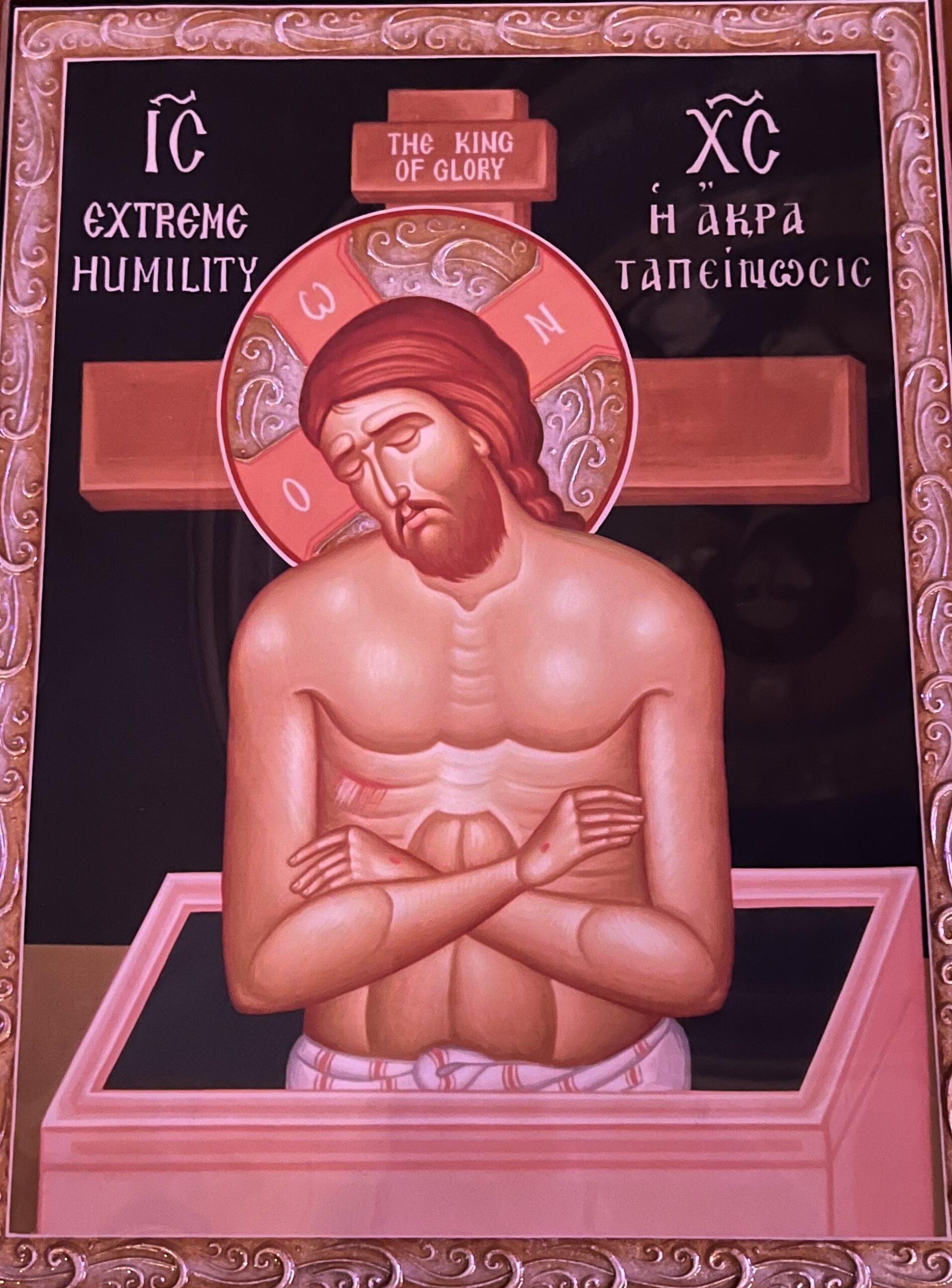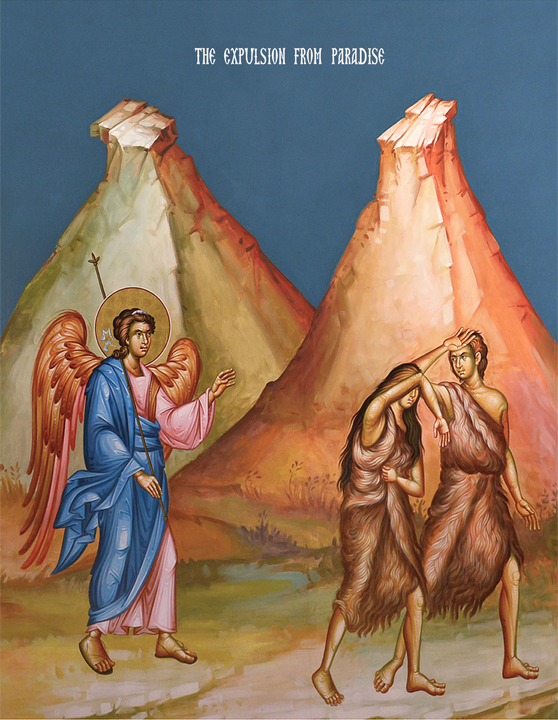It is time for the Lord to act. Psalm 119:126
This week, we will prepare to celebrate a Holy Week like no other we’ve ever experienced. Usually in this week before Holy Week, I offer some guidelines on how to get the most out of the Holy Week experience. This year these guidelines will be framed around the coronavirus and the fact that just about all of us will experience Holy Week from our homes, virtually. The next five reflections will offer some practical guidelines for how to get something out of the week, and also will help us understand that it is possible to have a meaningful Holy Week journey, even this year. As a priest, I am adjusting to celebrating services in an empty church, just as you are adjusting to watching them on the computer at home. While there are clearly some things I miss, namely the people, there are some positives. First, I feel very privileged to be able to still go to church, and I hope we will all feel that once we are all able to return. I hope that feeling won’t go away in a short time either. Second, I have been more focused on the words of the services. Because I have no idea how many people may be watching and who may or may not have a service book in front of them, I am more careful in enunciating the words as I offer them. Because worship from a distance also requires a little more focus, I hope that the additional focus from afar will help you focus better once we all return.
The first thing that makes for a successful Holy Week journey each year is time. We only get out of something what we put into it, and before making any effort, we have to make time.
There are two Greek words that get translated as “time.” One is “chronos.” Chronos is the time we measure in days, hours, minutes. The other word for time is “Kairos,” which is God’s time. It doesn’t move at a speed that can be measured in our time.
One of my favorite verses of the Psalms is Psalm 119:126, which in Greek reads, “Kairos tou piise to Kyrio.” While some translate this verse as “It is time for the Lord to act,” others translate it as “It is time to serve the Lord.” When a deacon serves with a priest, or a priest serves with a bishop at the Divine Liturgy, as the choir finishes singing the Doxology, the deacon (with a priest) or a priest (with a bishop) will give this prompt, as a sign that the time of Liturgy has now arrived. That it is indeed time to serve the Lord. Back when I was a deacon (and even now when I serve with a bishop), those words carried an energy. Even though most Sundays I serve alone, I still say these words quietly to myself, to make sure my soul is awake and ready to serve the Divine Liturgy.
Before a priest celebrates the Divine Liturgy, he offers several prayers, a small service called “Kairos,” where he “takes leave” of the world so that he can offer the Liturgy. After taking Kairos, the priest is obligated to celebrate the Divine Liturgy. He doesn’t leave the church for any reason until the Divine Liturgy is completed. (This is one reason I have asked ushers and Parish Council members to not tell me about emergencies in the middle of the Divine Liturgy, because I can’t leave anyway. I’ve asked that they tell me at the end.) The act of “taking Kairos” is a tangible reminder that man’s time is ending and God’s time is beginning.
I confess I often feel a tension when serving, as regards to time, the battle of Kairos versus chronos. I am cognizant of chronos time because I know people want to worship efficiently (I didn’t say quickly) so I keep my eye on my watch. But there are times in the service, as well as certain services themselves, where I don’t look at my watch, where I just embrace the Kairos, where I enjoy being in God’s time, and losing track of man’s time.
As a practical matter, during Holy Week, I always post the starting and approximate ending time of each service, so that I can relax and not worry about time, the people know how much time to expect each service to take.
The Cherubic Hymn that is chanted at every Divine Liturgy reminds us to “lay aside all worldly cares that we may receive the King of all.” Time is the most valuable of those worldly cares, because it is the commodity that we can never get more of. As we approach Holy Week, when we’ve made our decision about which services we will “attend” (virtually), then it is time to adopt a Kairos mindset, to set aside our worldly cares, especially time, and just be absorbed in God’s time. This works when we go to church, it works when we go to church virtually, and it should also be working outside of worship, when we pray or read Scripture.
When we pray and read Scripture, if we are very concerned about time, here is some practical advice. Set a timer for five or ten or fifteen minutes and put it on the other side of the room, so you can see it. And then, having dedicated a period of chronos time, don’t worry about the time, allow yourselves to just be with God, in a Kairos posture, where you are checking time each minute.
As we approach Holy Week, think about how much “chronos” time you will set aside to make the journey this year. Once you’ve made your decision, in that chronos time you’ve set aside, put aside watches and distractions and enter “Kairos” time—and spend some quality time with God.
Lord, thank You for the gift of time, for this day that You have added to my life. May I honor You with my time today, in what I say, in what I do. Please act in my life by giving me wisdom and patience, as well as eyes to see what the best way is that I can serve today. Help me recognize that any day and every day is an opportune time to serve the Lord. Amen.
Prayer of Protection from the Coronavirus
(Prayer by Grace Bishop Alexis (Trader) of Bethesda)
O God Almighty, Lord of heaven and earth, and of all creation visible and invisible, in Your ineffable goodness, look down upon Your people gathered in Your name. Be our helper and defender in this day of affliction. You know our weakness. You hear our cry in repentance and contrition of heart. O Lord who loves mankind deliver us from the impending threat of the corona virus. Send Your Angel to watch over us and protect us. Grant health and recovery to those suffering from this virus. Guide the hands of physicians, and preserve those who are healthy that we may continue to serve You in peace and glorify Your most honorable and majestic Name, of the Father and of the Son and of the Holy Spirit, now and forever and to the ages of ages. Amen.
When we serve, the Lord acts in our lives. So whether you translate Psalm 119:126 as “It is time for the Lord to act” or “It is time to serve the Lord,” the two go hand in hand. The Lord is always at work, and any time is a good time to serve Him.

